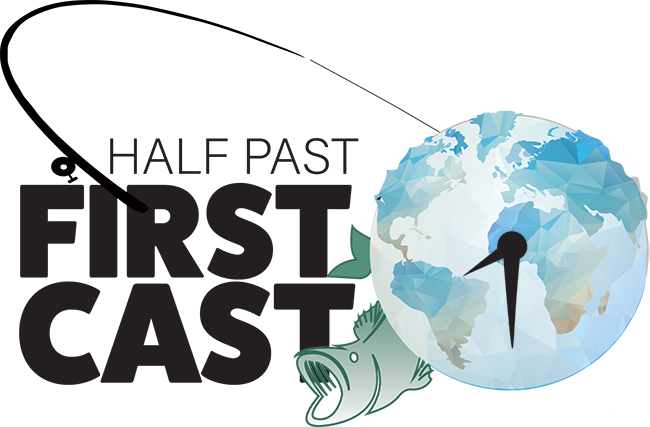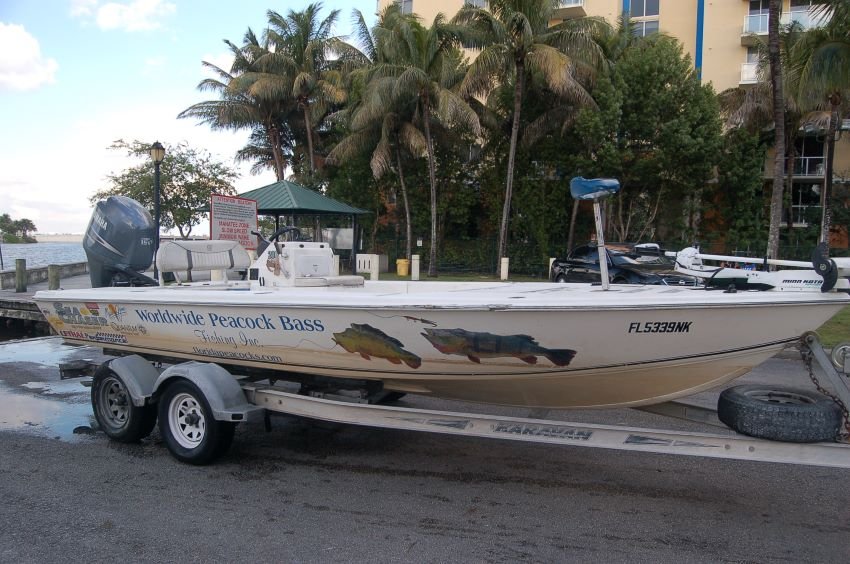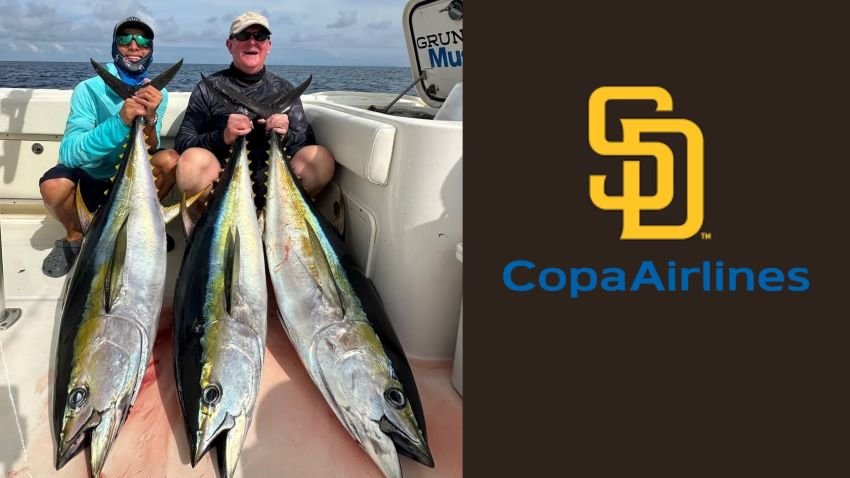Turn a Business Trip into a Fishing Trip
I can assure you that there are few things in life more satisfying that having someone else pay for your dream fishing trip – or at least paying for some of the expenses relating to such a trip. Even when it’s 100 percent legit, it feels like you’re getting away with something.
I’m jealous of those of you whose businesses pay for fishing excursions as corporate rewards or to help cement client relationships. We’ve seen such outings at Anglers Inn’s El Salto operation and at Casa Vieja Lodge, and it always seems like a fantastic way to bond people together and to show appreciation.
In all likelihood, though, you don’t get such perks through work. Even if you have a generous employer and you’re a top producer, they’re more likely to take you golf or skiing or give you a trinket of some sort to recognize your efforts. You may, however, have to go on frequent business travel. I don’t envy most of you who do. Even if you get the perks of business class flights, nice hotels and high quality meals, in most cases the juice isn’t worth the squeeze. I remember about 15 years ago my boss had to go to Hawaii for a series of meetings. After the grueling flight, he sat in a windowless conference room for two full days before jetting home. I don’t know that he tasted a single umbrella drink, viewed any bikinis or got sand between his toes. Nevertheless, if you have to fly places for work, try to add on something fun to make the experience palatable and productive.
There Are Fishing Opportunities Almost Everywhere
On a family trip to Los Angeles in the early 1990s, I hired a guide for a day at Lake Castaic, which was then in the midst of a trophy bass landslide. It was only the second time I’d ever been in a fiberglass bass boat. I recall the drive being only a little over an hour from our Santa Monica hotel. While it wasn’t technically a business trip, the principle was the same: We were staying in a major city, yet there was a world-class angling opportunity within reach.
You’ll be surprised at how many great fishing opportunities there are where you might not expect them. For example, it’s possible to get picked up by a charter boat in New York City’s financial district and fish for species including striped bass and bluefish. This past summer there was an incredible bluefin tuna bite within a short ride of the Statue of Liberty.
Detroit is another great example of a place most people wouldn’t expect to have great fishing, but the Detroit River and Lake St. Clair have some of the best musky, smallmouth, walleye and perch fishing in the world, again often within site of downtown.
In cities where there’s plenty of water, the options may be more varied. Miami, for example, is the traveling angler’s dreamland without leaving the city limits. Hanna and I enjoyed our first peacock bass adventure by hiring guide Alan Zaremba. Because some of the best fishing is right behind the airport, with a long layover and a little bit of tackle preplanning you could also chase them on foot. Obviously, there are significant saltwater opportunities just a short drive away, and if you have more time to branch out the keys to the south and Okeechobee to the north are storied historical destinations for traveling anglers.
Other locales may also offer choices depending on how much time and money you want to spend. From Dallas, you ca be at Lake Fork an hour plus to the east, but the lakes closer to the Metroplex can also be great at times. If you find yourself in New Orleans, of course Venice (less than 2 hours south) provides incredible inshore and offshore fishing (as well as some freshwater bass) but there are also guides and fishable waters much closer to the city, since the Mississippi runs right through. Make sure you give yourself the best opportunity to experience success given whatever limitations you have resting upon you.
How to Arrange It
If you know about the business trip (for example, if it’s a convention planned far in advance) and you want to hire a guide, rent a boat, or reserve a room, you’re likely in luck. Get on the books as soon as possible. If it’s a last minute trip, it might require a bit more wrangling. The best guides could be booked, or it might not be the proper season. Don’t try to force a round peg into a square hole, but also make sure that you explore all options.
The best reason to extend a work trip with a day or two of fishing is because a large portion of the expenses will already have been incurred by your employer or your personal business. If the trip is to take place on the front half of the week, go early, over the weekend. If you’re trip is to take place during the latter half of the week, try to stay a bit longer. The flight costs will likely not be substantially greater (they may even be less), so you’re stuck with the cost of any fishing excursions and tackle, plus perhaps an extra night in a hotel and/or with your rental car. In other words, you’ve substantially minimized the cost of fishing a new place or for a new species. If you can somehow save the boss money when doing so, you’ve hit the ultimate achievement.
Tips for Fishing Before, During and After a Business Trip
As a complete fishing travel geek, to me it seems like an absolute no-brainer to turn an otherwise dreary work trip into the fishing trip of a lifetime. For better or for worse, I am a “maximizer,” always trying to squeeze a little bit of fishing excellence even out of non-fishing scenarios. Even when I can’t add on some fishing to a trip, I’ll try to do something “angling adjacent,” like visiting a local tackle shop or meeting up with a local fishing friend for lunch or a beer.
If you’re going to try to make this happen, here are a few tips, in no particular order:
Be transparent about what you’re doing – Don’t ever try to hide your plans from the people at work because it never leads to anything good. An acquaintance once told his bosses that his grandmother had died and he was headed to the funeral, when he was actually headed off to compete in a big money bass tournament. He won the tournament, got a lot of publicity for it, and found himself out of a full-time job. Don’t risk something similar. Take ownership of what you’re planning and ask if they have any objections. If it’s off the clock and doesn’t cost them anything, they should not have any.
Check with your accountant – As always, don’t be pennywise and pound foolish. If something is a legitimate business expense there’s no harm in deducting it, but just because you’re on a work trip doesn’t make something a business expense. If you’re going to try to deduct any or all of anything fishing-related, check with your accountant first.
Bring the right clothing – Your spit-shined wing tips and three piece suit may be functional on the boat, but they’re certainly not ideal and won’t stand up to a rainstorm or wind storm. Bring a rain jacket no matter what, along with worst-case-scenario weather-appropriate gear. You can always buy inexpensive shoes or clothes on site if needed. While I’m generally in favor of quality gear and sustainability, in this one case I’ll give you dispensation to buy something disposable.
Support the local tackle shop – Check in with a local tackle shop before or during your trip to get the skinny on what’s going on in your destination’s fisheries. They may have incentives to book you out with certain guides or charters, but more often than not they’ll give you solid information. Be sure to patronize them, too. Not only are they likely to have some gear that you cannot find at home, but it also shows your appreciation and helps them stay in business.
Don’t forget a fishing license – Don’t forget to be street, lake and river legal in your destination. A license prevents you from ending up in a bad position or incurring an extra unexpected cost.
Consider transportation options – In some cases, a guide or outfitter may pick you up and return you to your hotel. In other situations, you might need a rental car. If so, be sure to ask about where you should part at the dock, ramp or marina. If you’re within the confines of a major city, Uber, Lyft or a regular old taxi might do the job – as long as you’re reasonably sure that there will be one to get you home as well. In Manhattan, don’t hesitate to use the subway.
Get travel rods – If you don’t trust the tackle you’ll be given, or you’ll be DIYing it, bring a travel rod or two in your suitcase or briefcase. We’ve detailed many of the options in past blogs and some are remarkably high-quality as well as incredibly packable. In fact, even if there won’t be dedicated time for fishing on a particular trip, pack it along anyway. You’ll be surprised at how many hotels, office parks and other residential or commercial areas have water that is chock full of hungry fish.









